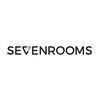Majority of Americans Say Loyalty Programs Influence Hotel Booking, Making Guest Preference Personalization Critical for Hotels Today
SevenRooms report reveals top booking incentives and loyalty program must-haves for hotel guests

NEW YORK – As travel continues to ramp up in 2022, hotels are eager to bring in guests to drive much-needed revenue for their businesses. While many are leveraging loyalty programs and perks to entice guests to book again, the consumer of today has changed, and hotels must adapt to meet their unique needs. With 44% of consumers saying loyalty programs play a part in their hotel choice, hotels must determine which perks and incentives are most effective to compete in today’s travel market. Hospitality guest experience and retention platform SevenRooms has uncovered the key profiles of today’s hotel guests and divulges which incentives drive loyalty in "Booking Behaviors: Exploring Hotel Guest Loyalty.”
The study, commissioned through independent third-party research firm YouGov, profiles the Personal Patron and the Business Traveler, diving deep into each guest’s attitude and preferences when it comes to booking a hotel and, subsequently, returning in the future.
While the study revealed that over a third (34%) of Americans say recognizing their loyalty status upon check-in increases their chance of rebooking, recognition isn’t enough.
Rather, it is how hotels appeal to their varying preferences that will prompt these guests to rebook.
The Personal Patron
The Personal Guest is a new breed of leisure traveler, one dreaming of vacation during lockdowns and eager to resume travel with a vengeance this summer. This guest is more likely to be female1 and over the age of 352.
When it comes to booking hotels, the Personal Guest is eager to squeeze the most value out of their stay, with their top motivators for rebooking centering around incentives including:
- Getting additional loyalty points for enjoying on-property restaurants and bars (38%)
- Earning enhanced credit card rewards (36%)
- And receiving dining credits for hitting a new loyalty tier (36%)
Yet, surprisingly, this personal traveler is less likely to join hotel loyalty programs. Only 45% of hotel-booking Personal Patrons say they’re loyalty members. However, the majority (57%) of that same group
say they don’t travel enough to take advantage of these programs. To secure the loyalty of these guests, hotels should offer targeted dining-only points that can be redeemed or earned at venues in the Personal Patron’s own city, or encourage them to book a staycation or use a local hotel’s amenities, like the spa or pool, for the day to maximize use of their points closer to home.
The Business Traveler
The new Business Traveler may be a junior staffer whose job requires extended stays at various hotel locations throughout the U.S., or a long-distance commuter who is looking for a home base mid-week. In contrast to the Personal Patron, they are more likely to be male4 and between the ages of 18-345.
Business Travelers might not have the bandwidth to venture off the hotel property, so, in addition to racking up loyalty points, they are convinced to rebook with a hotel brand through perks that enhance on-property experiences and make their stay more enjoyable, including:
- Getting additional loyalty points for enjoying on-property restaurants and bars (41%)
- Being recognized for their loyalty status upon check-in (40%)
- Receiving a complimentary drink or pre-selecting an in-room F&B amenity
upon arrival (35%)
As more active loyalty members, 55% of Business Travelers say the ability to participate in a loyalty program plays a part in where they choose to book.To convert this group into long-term loyal customers, hotels should offer memorable experiences that make their downtime worthwhile, such as a complimentary glass of their favorite wine with a room service order after a busy workday or priority reservations at the lobby restaurant for a power lunch.
The full report can be found at here.
Research Methodology: SevenRooms commissioned YouGov PLC – a third party, professional research and consulting organization – to poll the views of 1,215 individuals who agreed to take part. Fieldwork was undertaken online between March 15 - 16, 2022. The figures have been weighted and are representative of all US adults (aged 18+).
1. 70% of females surveyed vs. 68% of males
2. 70% over the age of 35 vs. 66% of those 18-34
4. 29% of males surveyed vs. 17% of females
5. 32% between 18-25 vs. 18% of those 35 and older
About SevenRooms
SevenRooms is a guest experience and retention platform that helps hospitality operators create exceptional experiences that drive revenue and repeat business. Trusted by thousands of hospitality operators around the world, SevenRooms powers tens of millions of guest experiences each month across both on- and off-premises. From neighborhood restaurants and bars to international, multi-concept hospitality groups, SevenRooms is transforming the industry by empowering operators to take back control of their businesses to build direct guest relationships, deliver exceptional experiences and drive more visits and orders, more often. The full suite of products includes reservation, waitlist and table management, online ordering, mobile order & pay, review aggregation, email marketing and marketing automation. Founded in 2011 and venture-backed by Amazon, Comcast Ventures, PSG and Highgate Ventures, SevenRooms has dining, hotel F&B, nightlife and entertainment clients globally, including: Marriott International, MGM Resorts International, Mandarin Oriental Hotel Group, The Cosmopolitan of Las Vegas, Wynn Resorts, Jumeirah Group, Hard Rock Hotels & Resorts, Wolfgang Puck, Michael Mina, Bloomin' Brands, Giordano's, Australian Venue Company, Altamarea Group, AELTC, The Wolseley Hospitality Group, Dishoom, Live Nation and Topgolf. www.sevenrooms.com
